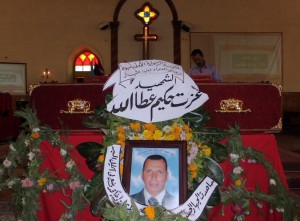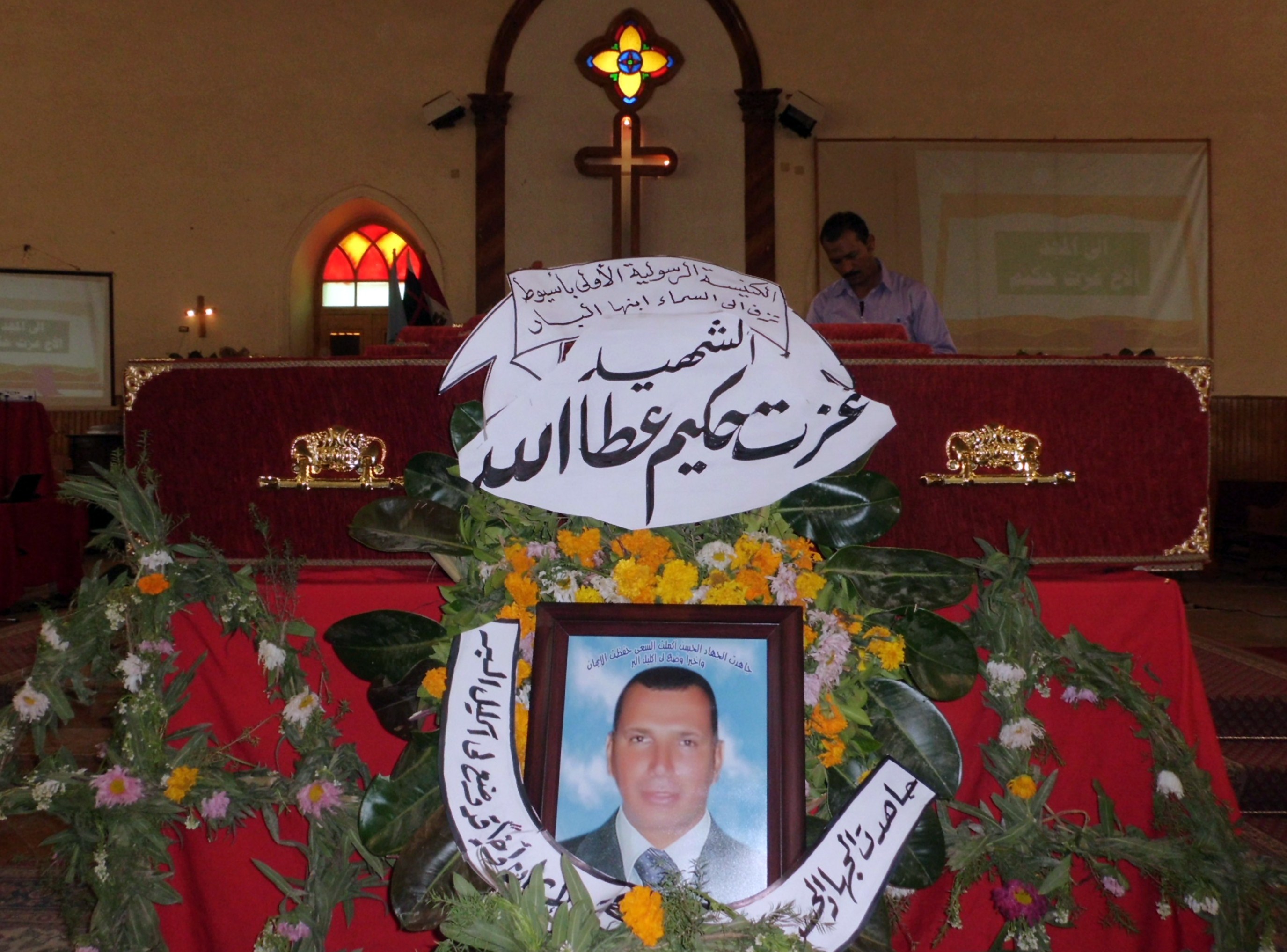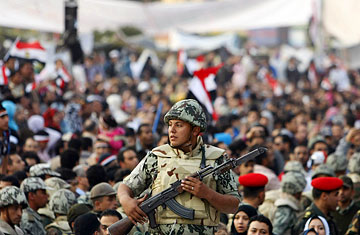
(AFP Photo)
The funeral and burial of Ezzat Atallah who died while in Libyan authorities’ custody was held in Assiut on Wednesday.
A ceremony for the deceased was held at the Evangelical church in Assiut, amid intense sorrow.
Atallah was a Copt who was accused along with several others of proselytising in Libya. His death has provoked rage among Egypt’s Coptic community and a protest was held outside the Libyan embassy in Cairo on Monday
Atallah’s body was flown to Cairo on Tuesday night. His wife has held several meetings with Libyan authorities and forensic experts to learn the details of her husband’s death.
Though Atallah had reportedly suffered from diabetes and heart problems, Magdy Saber, the vice chairman of the Maspero Youth Union, believes he died as a result “of 10 days of torture at the hands of the police which raised his blood pressure”.
He described Atallah as a “martyr” and said he was sick but that his illness along with the “torture and negligence” is what killed him.
Saber added that after a long period of not being able to communicate with them, Atallah contacted his wife and sister three days before his death and complained of the ill-treatment in custody.
He said Atallah had been living in Libya for several years and described the charge of proselytising as a lame charge.
The Egyptian embassy in Libya said the ambassador made sure Atallah’s wife met with Libyan officials and forensic experts to learn the details of the death herself.
The Egyptian Organisation for Human Rights called on Egypt’s Foreign Ministry to demand Libyan authorities to open an immediate investigation into Atallah’s death.
Tony Sabry from the media committee of the Maspero Youth Union said: “We desecrated the [Libyan] flag and took down the sign and this is the start of the rage.” Sabry added that another protest outside the embassy will be held on Thursday.
In a statement released by the Egyptian Ministry of Foreign Affairs on Tuesday, an assistant to the minister said the ministry has taken the necessary procedures regarding the protest.
He added that it is important to protect diplomatic headquarters and said he trusted that Libyan authorities did the same for Egypt’s diplomatic headquarters and Egyptian expatriates.
Saber said Copts who have returned from Libya have told stories of “heinous oppression” they faced there.
Earlier in March, dozens of Egyptian Copts were detained and allegedly tortured after Bibles and pictures of Jesus Christ were found with them. In December 2012, an Egyptian Coptic church was attacked in Misrata killing two Egyptians and injuring two more.
In addition, reports of Egyptians facing deportation, torture and abuse in Libya have recently risen.
Two committees in the Shura Council held meetings on Tuesday attended by representatives of the foreign ministry as well as families of those who died and were detained in Libya and the United Arab Emirates, where Egyptians have been facing increasing arrests.
A delegation set up by the committees will meet with the representatives of the embassies to discuss the situation.


